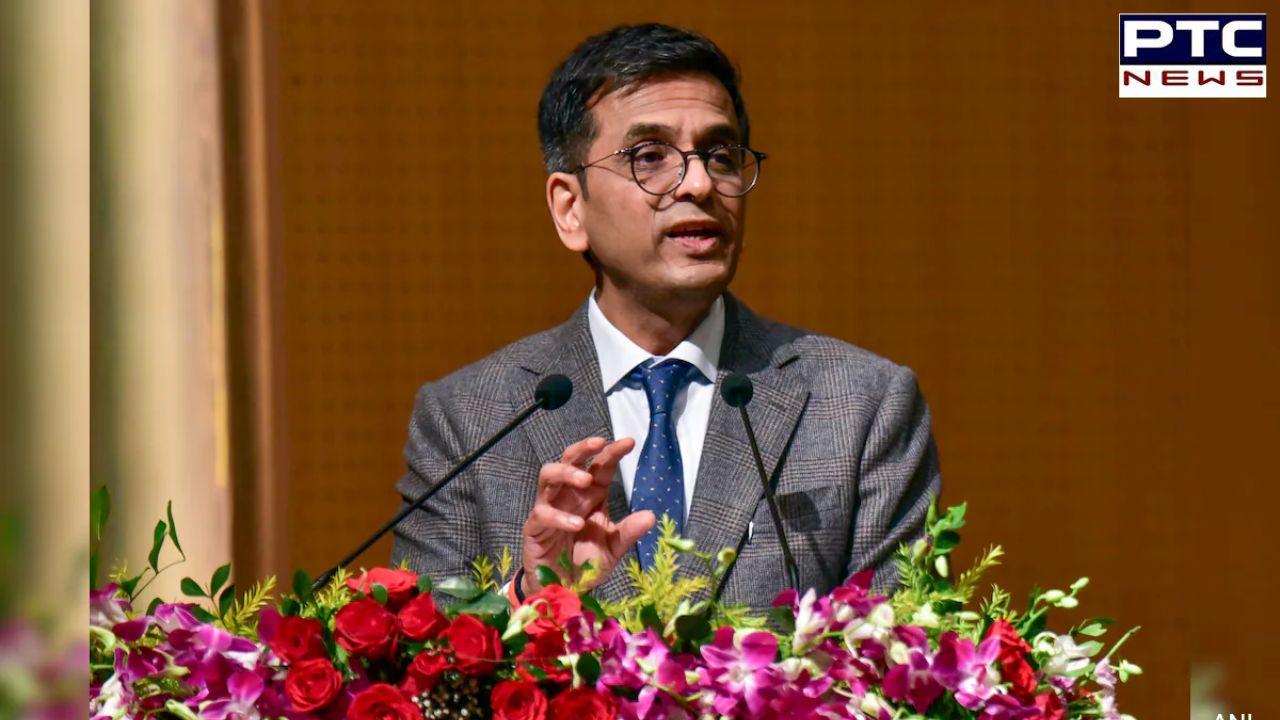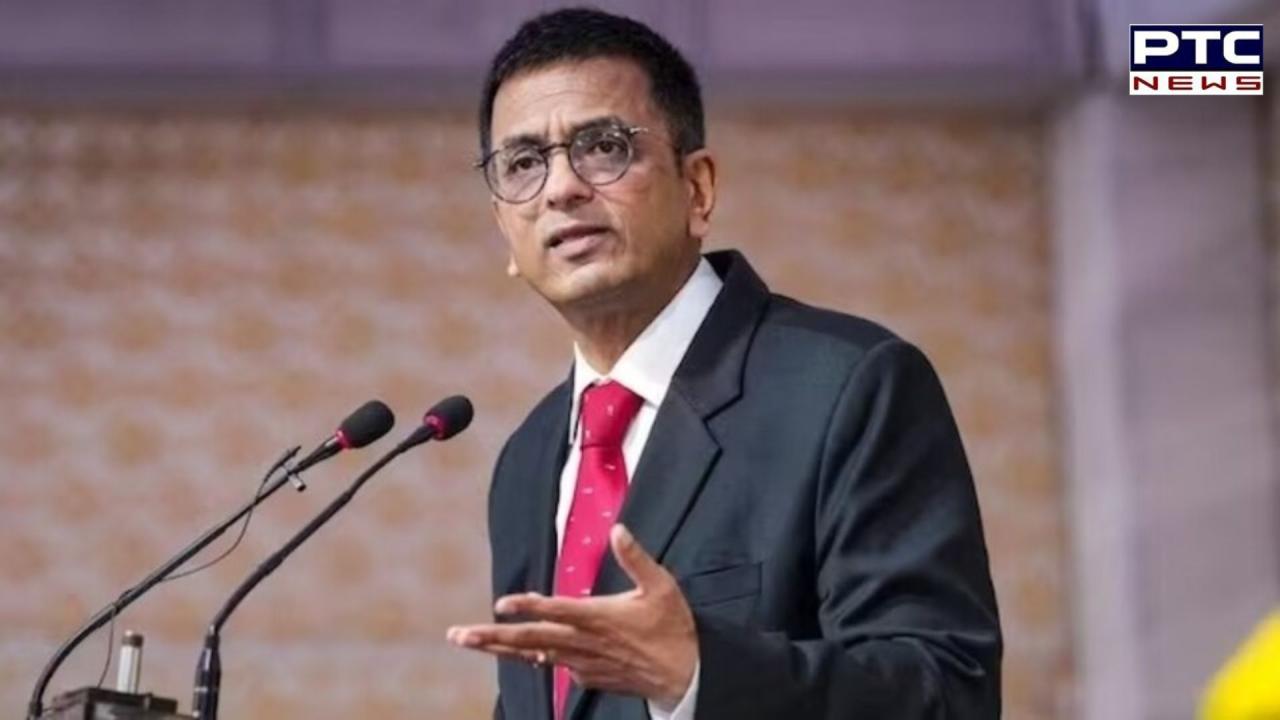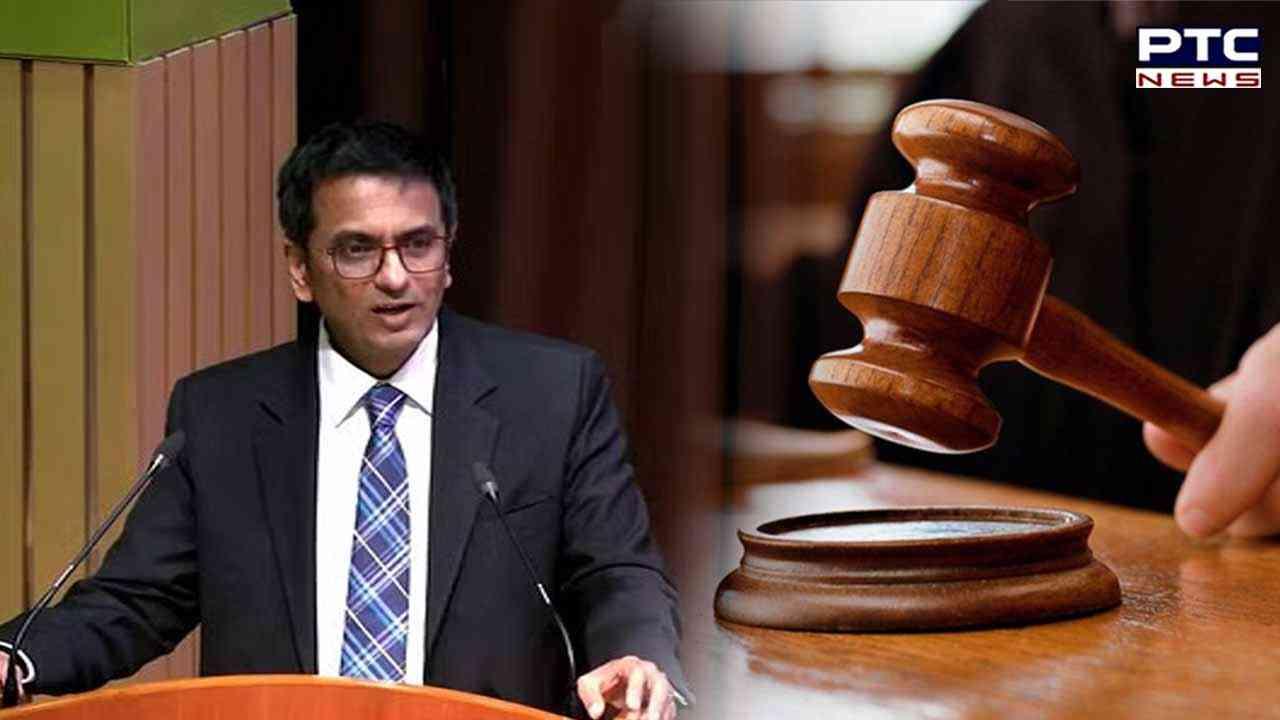

'Our laws and their implementation are an ever-evolving area,' says CJI DY Chandrachud
New Delhi: The Chief Justice of India, Justice DY Chandrachud, on Saturday said that "the newly enacted criminal laws have transitioned India's legal framework on criminal justice into the new age."
He highlighted the significant improvements aimed at safeguarding victim interests and enhancing the effectiveness of investigations and prosecutions.
Mentioning the three New criminal laws -Bharatiya Nyaya Sanhita, Bharatiya Nagarik Suraksha Sanhita, and Bharatiya Sakshya Adhiniyam, Justice DY Chandrachud said, "These laws signify a watershed moment for our society because no law affects the day-to-day conduct of our society like the criminal law."

Criminal law directs the moral arc of a nation. The underlying justification for the substantive provisions is the age-old harm principle, which is best summarised in the saying, 'Your right to swing your arms ends just where the other man's nose begins. Procedural law, which governs crimes from the state of setting the criminal process in motion to the conviction for the commission of the offence, ensures that no person is charged and subsequently convicted for offences without due process of law, he added.
While addressing the Conference on India's Progressive Path in the Administration of the Criminal Justice System, Chandrachud said, "Our laws and their implementation are an ever-evolving area. There is no finality to any law or the manner of its implementation. However, we must be willing to embrace positive changes to meet the needs of our times."
"I expect that with the implementation of the new criminal laws, we will discover loopholes and areas that need to be addressed. Such debates would be helpful in enhancing the efficiency of our criminal justice systems. However, the ideological framework at the heart of our analysis must be justice-oriented with a civil liberty-centric approach that balances the interests of the victim and the accused," he added.
"Our laws need to address these concerns and obviate age-old issues like delays in examination of witnesses, conclusion of trials, overcrowding of prisons and the issue of undertrial prisoners," he said.
The 248th Report of the Standing Committee of the Rajya Sabha on the Bharatiya Sakshya Samhita, dated November 10, 2023, highlighted the Indian criminal justice system's struggle to adapt to significant technological advancements.

These changes have fundamentally reshaped the landscape of crime, posing challenges in investigation, evidence admission, prosecution, and justice delivery. The Chief Justice of India emphasized the growing complexity of technology-driven crimes, which transcend traditional investigative boundaries and create collaborative networks in the digital realm.
The three laws, i.e., the Bharatiya Nyaya Sanhita, 2023; the Bharatiya Nagarik Suraksha Sanhita, 2023; and the Bharatiya Sakshya Adhiniyam, 2023, replace the earlier criminal laws, namely, the Indian Penal Code 1860, the Code of Criminal Procedure, 1973 and the Indian Evidence Act, 1872. As notified, these criminal laws are to take effect from July 1.
- With inputs from agencies
